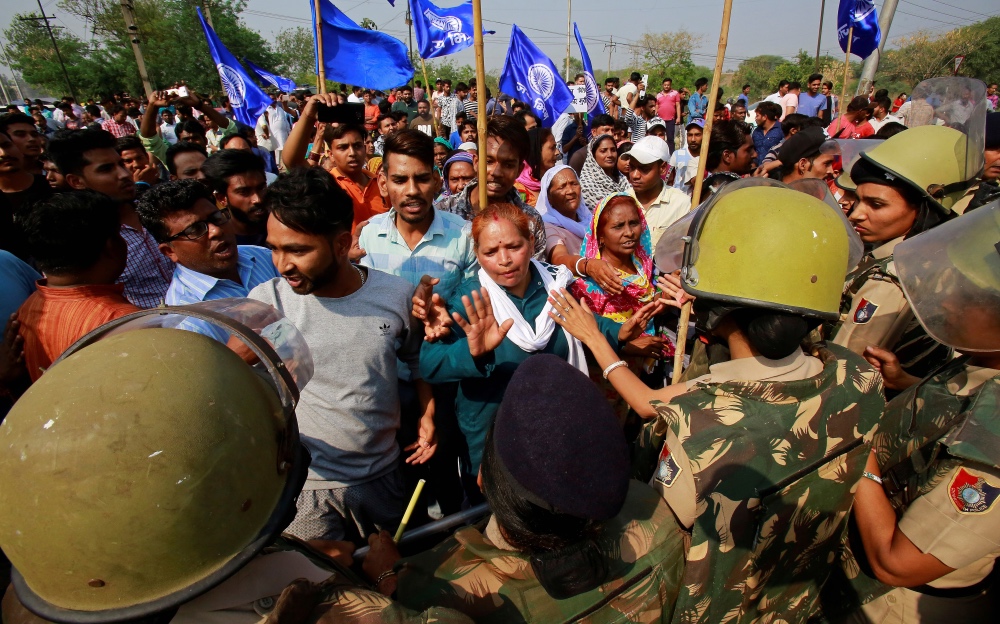Chennai, India
Thomson Reuters Foundation
Spurred on by US anti-racism protests, lower-caste Dalits on Wednesday called on India to acknowledge centuries of oppression they have endured and recognise that “every life matters”.
Dalits are at the bottom of India’s ancient caste hierarchy, whose membership was determined at birth, and have historically faced violence, segregation and been barred from even having their shadows touch those of people from higher castes.

Police try to stop people belonging to the Dalit community as they take part in a protest during a nationwide strike called by Dalit organisations, in Chandigarh, India, on 2nd April, 2018. PICTURE: Reuters/Ajay Verma/File photo.
Dalit campaigners said they supported the Black Lives Matter protests in response to the death of African-American George Floyd after he was knelt on by a white police officer, and hoped it would ignite a similar conversation in India.
“We extend our solidarity because we feel them and we have faced discrimination ourselves,” said Omprakash Mahato, president of the Birsa Ambedkar Phule Students Association, a Dalit organisation at Jawaharlal Nehru University.
India banned discrimination based on caste – a system which divided Hindus into groups based on occupations – in 1955. But ancient biases against lower-caste groups persist, making it harder for them to access education, jobs and homes.
“In India, people need to admit their role in everyday discrimination faced by Dalits and only then can a dialogue for change be initiated. We hope what they are seeing unfolding globally will lead to soul searching,” said Mahato.
“People need to understand that every life matters.”
Dalits, who were sometimes forced to perform ‘unclean’ tasks like disposing of corpses, and scheduled tribes – indigenous peoples who are often isolated or disadvantaged – form about a quarter of India’s population of 1.3 billion.
“Indian Dalits have historically learnt a lot from the struggle of African-Americans,” Ruth Manorama, who works for rights of Dalit women, told the Thomson Reuters Foundation.
“This is a good moment to challenge the narrative in India also and talk about the age-old repression of Dalits, which is visible even during the COVID-19 pandemic with discrimination denying people aid.”
Dalits were among the worst hit by India’s strict lockdown, often having to wait longer for their turn to receive food or financial aid at local distribution points, and even being turned away, she said.
About 300 people have signed a Change.org petition emphasising that the “lives of Dalits and minorities matter too” and urging Indian Prime Minister Narendra Modi to “admit…that caste discrimination is included in racial discrimination”.
“It is a good time for people in India to understand and to point out to the government that racial discrimination is not only what you see in America,” said Henri Tiphagne of People’s Watch, a charity backing the petition.
“It is the same as how so-called ‘untouchables’ are treated in India.”






